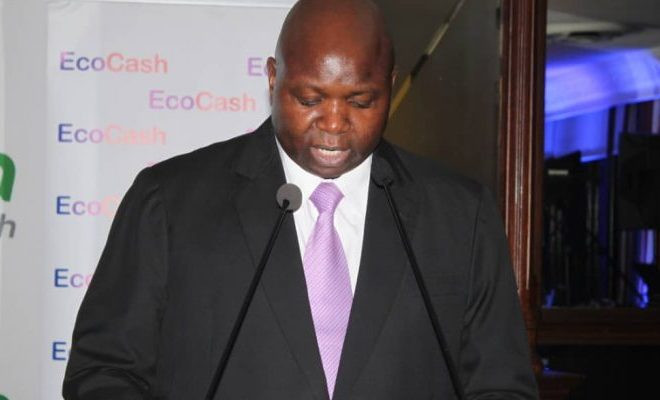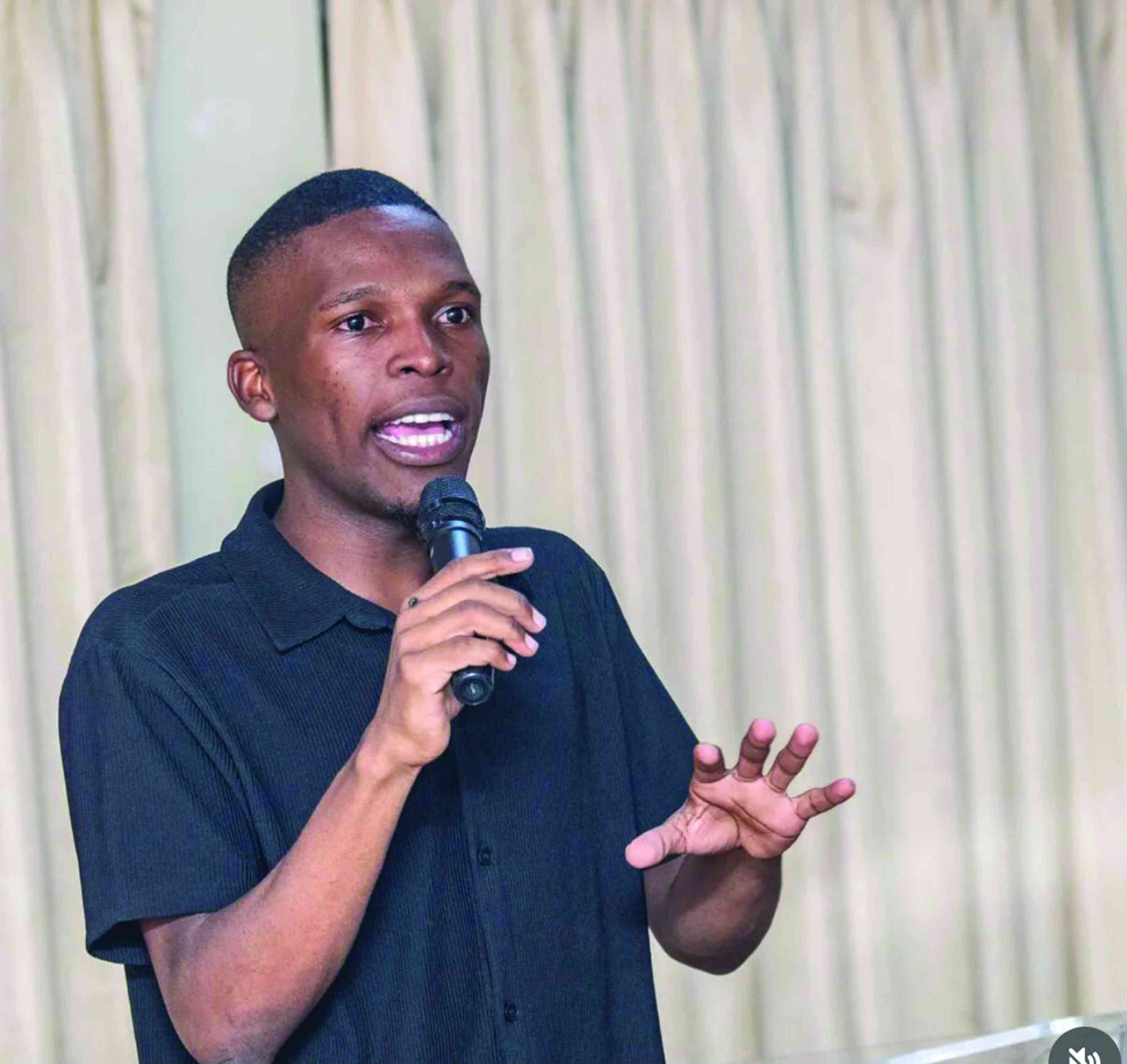

BY PHILLIP CHIDAVAENZI
IF he had still been a bachelor, Alex Mhapare would have packed his bags and left — and perhaps gone back to “squat” with his elderly parents in Chitungwiza, or to settle in their rural home in Mt Darwin where life seemed simpler.
But the 28-year-old father of two and self-employed “computer expert” in Harare’s Highfield suburb cannot afford such fantasies.
Mhapare has to keep hustling, repairing computers and laptops from his backyard workshop in the high-density suburb, although electricity — with power utility Zesa having reverted back to stage 2 load-shedding — has been his major letdown.
“This means there is no business during the day when there is no power,” he said. “And that means less money at the end of the month, but financial responsibilities keep piling up, whether or not there is electricity.”
He can still afford a laugh, but within its fold one senses the bitterness, the frustration of a man fighting forces beyond his strength.
“This is a fight for survival. We just have to make sure there is food on the table at whatever cost,” he said with the resignation of a man who has thrown his last dice on the roulette wheel after a long night of gambling.
With the country going for as much as 20 hours a day without electricity, Mhapare’s story echoes that of other small-scale business players whose operations have virtually ground to a halt because of the extensive power cuts.
- Chamisa under fire over US$120K donation
- Mavhunga puts DeMbare into Chibuku quarterfinals
- Pension funds bet on Cabora Bassa oilfields
- Councils defy govt fire tender directive
Keep Reading
Isaac Mareya runs a fairly vibrant printing business in Seke’s Unit O area in Harare’s domitory town of Chitungwiza.
But over the last few months, he said he has also been severely punished by the shortage of power, a key component without which his machines stop running.
“I’ve been forced to use diesel, but that is not sustainable because of the high fuel costs, especially now when fuel prices continue going up,” he said.
“It means most of the day I can’t work. My only option is to push a few jobs at night up until around 1 or 2am. But how much can you do?”
So, what is he going to do? Despite promises by Finance minister Mthuli Ncube that the worst is over after instituting austerity measures ostensibly meant to consolidate fiscal space in the economy, Mareya said he does not feel like he is over the hill yet.
“I am not sure if these leaders are living in the same country and experiencing the same pain with us,” he said, tongue in cheek, reminding one of how Ncube — soon after his appointment as minister, reportedly lived in an upmarket Harare hotel on taxpayers money while awaiting his house to be renovated and flying back to Switzerland almost every week to be with his family.
Neither does Lenny Muchirahondo, who runs a butchery at Budiriro 4 shopping centre in Harare — where his meat business has been reduced into a shell, believe he would ever see brighter days with the current government in charge.
“There is nothing,” he said with a sweep of the hand, indicating the empty refrigerators in the butchery. There have become no more than decorative shelves.
“I’ve had to relieve my three employees of their jobs. It’s useless to run a butchery without reliable supplies of power. Using a generator is costly because it is no longer stop-gap measure as should be the case under normal circumstances. It has become the normal way of life.”
The power cuts have destroyed whatever was left of manufacturing as industrial sites — the supposed hubs of economic development — have not been spared the wrath of load shedding, which has condemned the country to long spells of darkness.
Last month, Zesa hiked the cost of power by 320%, but the parastatal seems to not have secured some breathing space, with the supply of regular power still a herculean task.
In a statement, the Zimbabwe Energy Regulatory Authority (Zera) said the hike was part of efforts to restore normal electricity supply after the 38,61 cents/kWh was rendered ineffective by inflationary pressures.
“The authority analysed the current situation characterised by about 18 hours of load shedding on most consumer groups, the high cost of alternative energy supplies, the deterioration of the tariff being charged against what is deemed cost reflective and made the approval of an average tariff at ZETDC level of $162,16c/kWh effective 3 October 2019,” said Zera.
Although Zesa successfully pleaded lack of capacity to import spare parts due to the paltry tariffs, its long unflattering record of corruption — which saw some managers turning it into a feeding trough before the long arm of the law caught up with them — cannot be ignored, according to social commentator Robert Mhishi.
“If we were indeed going through austerity measures in which everyone had to play a part, then action should have been taken against those people accused of defrauding Zesa,” he said.
In June this year, Energy and Power Development minister Fortune Chasi admitted, during a post-Cabinet Press briefing, that Zesa was hamstrung by a creditors list which has top politicians across the divide and State entities.
“We just have to pay. This is not the time for political banter or what. We have to pay. Zesa is a commercial entity which needs to survive. It is owed in excess of $1,1 billion. Yes, today the Minister of Finance (Mthuli Ncube) has indicated that he would pay $20 million owed by government departments. That is a drop in the ocean,” Chasi said.
But Chasi’s crusade seems to have run out of steam, with a few token arrests designed to appease a restive population unhappy with the endemic corruption that has eaten the power utility at the core like a festering wound.
“As of now, what is clear is no fat cat has been punished for owing Zesa, or made to own up, perhaps except a few spent forces who no longer have any political power to speak of,” Mhishi said.
“Electricity is a critical component of industrial production, and without it, there can be no economic development. This is what should be topping government’s priority list.”
Although Chasi indicated that if pushed to the wall, Zesa would soon name and shame those who owed them regardless of their station in society, that has not happened, except for a few token name releases of politicians who no longer have political currency.
“We need to pay our debts. There is no quick fix here. We are getting about 50 megawatts (MW) from Eskom of South Africa. If we pay, we are able to get something in the region of 400MW,” he said then.
Government, has however, shown great insincerity over its desire to address the power challenges.
“It really does not make sense that the country owes Eskom US$24 million as Zesa has not been settling its debts, but government recently splashed US$16 million on luxury cars for ministers at a time the country is enduring long hour load shedding cycles. Quite clearly, this is a demonstration of confused priorities,” Mhishi added.
Researcher and development economist, Tafara Chiremba, observed that corruption and public funds mismanagement have significantly contributed to endemic levels of poverty, with millions of people crying out for respite.
“The government should make sure it addresses the root cause of the problems, which in this case is the lack of a broader and shared national policy framework, corruption and mismanagement of public resources,” he said.
Load shedding, which in the past spared industrial areas, has become the norm since President Emmerson Mnagagwa came to power two years ago and industrial sites have been hit hard as well, forcing some companies either to close shop or scale down production due to the high cost of fuel for generator power.
The country is facing its most severe power crisis in decades, having only relied on mostly hydropower and thermal energy generation despite the abundant sunshine and huge potential for investment in solar energy.
Zimbabwe has an installed capacity of around 2 000MW with demand at 1 500MW, but power generation from its hydropower station in Kariba, Hwange (thermal), Munyati (thermal), Harare (thermal) and Bulawayo (thermal) is at a combined total of 1 200MW. Kariba Dam, from which the country generates 57% of its electricity, currently has low water levels due to poor rains last year and is currently supplying just about 34% of power to the national grid.







